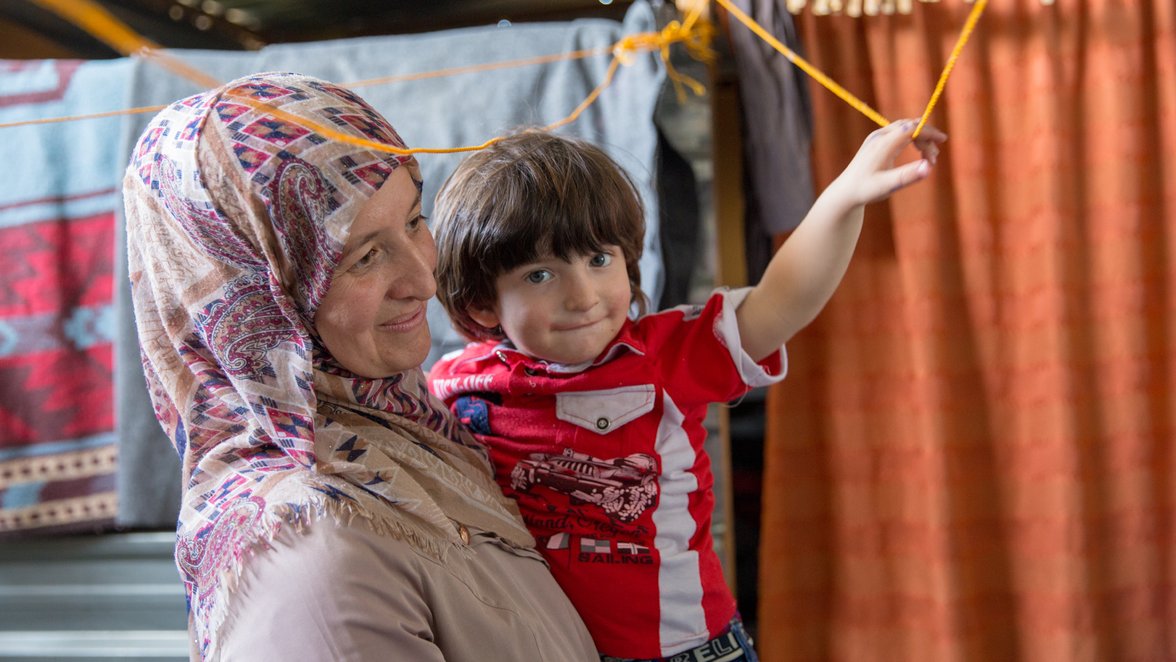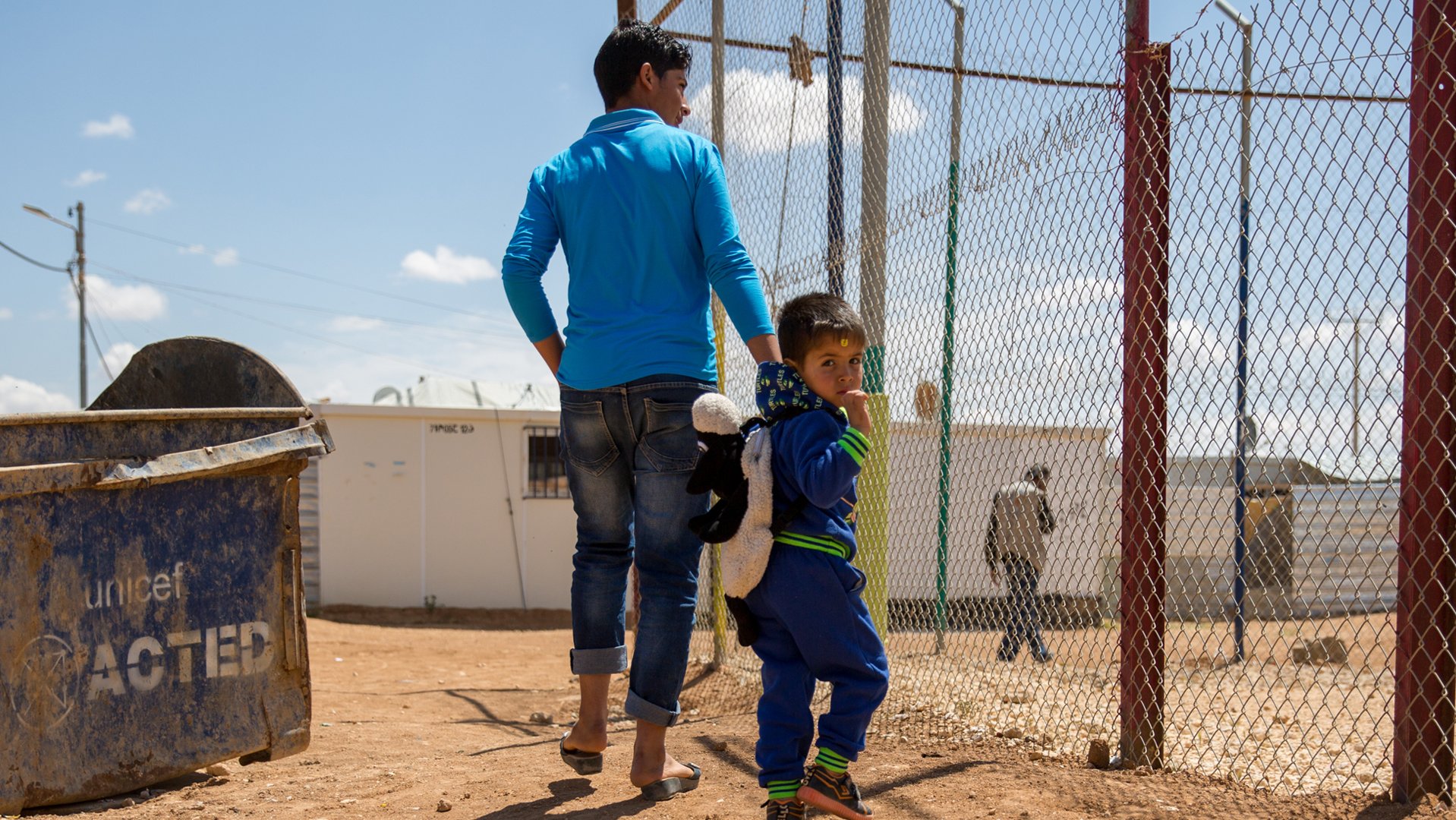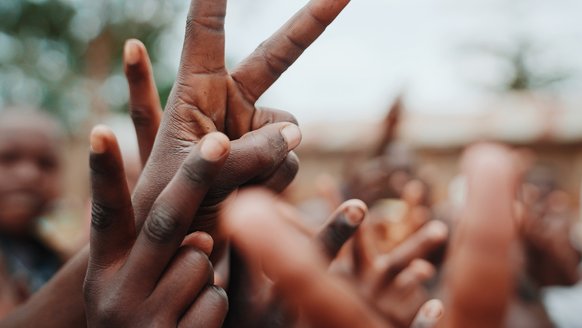Caregiver Support Intervention: Global lockdown, Syrian refugee communities in Lebanon and remote data collection
May 1, 2020
Anna Devereux

Conducting research in areas affected by violence and armed conflict can lead to many uncertainties - which is not ideal in a controlled research setting. This is one reason why there are few of scientific studies focusing on interventions in conflict-affected settings. As researchers, you are prepared to a certain degree to mitigate risks in a randomized controlled trial - yet a global pandemic poses bigger problems. So when COVID-19 emerged in Lebanon, where the CSI team was undertaking research with Syrian refugees, fast-thinking was needed to complete the study.
The project
The Caregiver Support Intervention (CSI) is a nine-session group intervention designed to strengthen parenting in families affected by issues such as displacement, conflict and war. In total 480 Syrian refugee caregivers were involved in this study which began earlier this year in Tripoli.
By March, the randomized controlled trial was almost complete. The first group of participants experienced the intervention fully and were assessed at the end of their participation. The second group of participants only needed three more weeks to complete the intervention.
The spread of COVID-19 meant that all group-based activities needed to be abruptly halted, which was, of course, vital to keep people safe and stop the spread of the virus. But this put the status of the entire project at great risk. A shortened implementation would be acceptable, but without collecting data following the intervention, there would be no way to assess the effectiveness of the CSI. The whole project would be jeopardized if data wasn’t collected for the second group of participants.
How the team responded
The team successfully conducted the end-line assessment entirely by telephone, with all research team members working from home. The entire process, conducted completely under lockdown, was developed in five days and implemented in seven.
The team first set up the technological infrastructure for remote data collection. They were able to conduct surveys through WhatsApp or the phone with 240 refugee caregivers. This was challenging as large families share small spaces and connectivity is expensive and unreliable. Phone credit was transferred to families to compensate for call costs.
The result
In total 94% of refugee caregivers were interviewed using this remote methodology. Their responses are deeply appreciated, especially given the troubling circumstances COVID-19 has brought about.
Recommendations for remote data collection in the face of COVID-19
- Schedule enough time between phone-interviews taking connectivity challenges into account
- Prioritize team wellbeing in the face lockdown stress for both the research team and participants
- Pace team energy by scheduling fewer interviews each day

Photo: War Child
More information on the intervention…
The Caregiver Support Intervention (CSI) is a nine-session group intervention aimed to strengthen parenting in families affected by issues such as displacement, conflict and war.
Caregivers facing adversity and stressors such as poverty, insecure housing and separation from social support networks may as a result adopt harmful coping mechanisms or experience depression or anxiety. This toll weighs heavy and some may not be able to cope with the responsibility of being a caregiver - impacting upon their children’s own development and mental health.
The curriculum of the CSI has two focal areas: caregiver wellbeing and positive parenting.
The first section of the intervention focuses on lowering stress amongst parents and improving their own psychosocial wellbeing. In a group setting, caregivers learn coping mechanisms. The second part of the curriculum centres on positive parenting techniques which serve to support healthy psychosocial development in children.
The intervention reinforces the abilities of caregivers - supporting them to make the best use of the parenting knowledge and skills they already possess. All this ultimately serves to further support conflict-affected children - by promoting the psychosocial wellbeing of the people who care for them.
Further resources
How the team responded to COVID-19 and completed this study remotely was featured in Lancet Psychiatry. Download the Lancet Correspondence feature.
(Alexandra Chen, Fadila Tossyeh, Maguy Arnous, Ahmad Saleh, Ahmed El Hassan, Joy Saade. Kenneth E Miller. 2020. Phone-based data collection in a refugee community under COVID-19 lockdown. The Lancet Psychiatry).
Researchers Ken Miller and Alexandra Chen of Harvard University also discussed this experience with The Lancet Psychiatry editor Dr. Dustin Graham on The Lancet podcast. Download or listen to The Lancet podcast.
